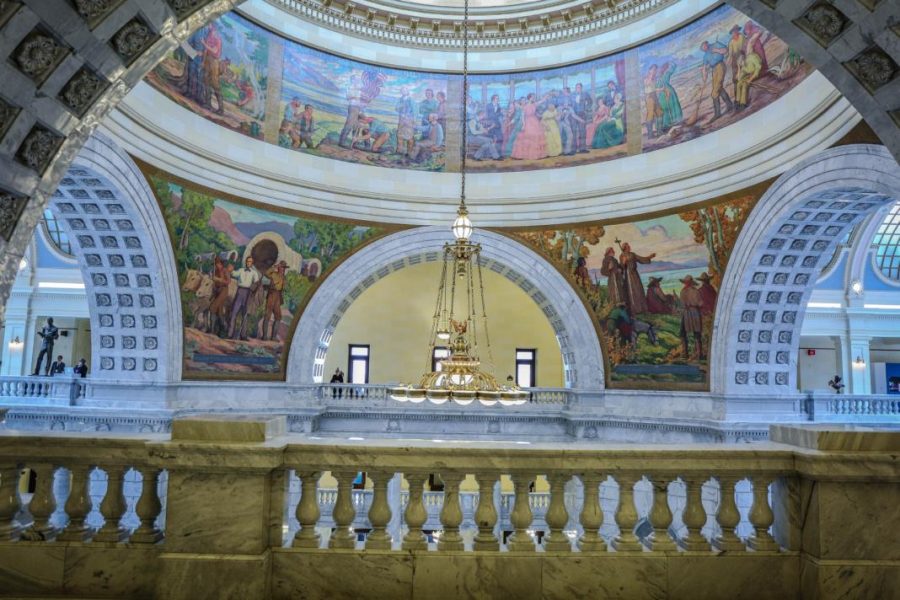Our childhoods are arguably the most important and integral periods of our lives. They define what we will come to like, dislike, find important and unimportant. As we become adults, the desire to throwback and experience nostalgia is becoming a popular trend. That’s not to say this phenomenon is exclusive to our generation. It seems every generation is going through a similar process. Your grandma loves to go through old photographs and reflect on the 1950s and ‘60s and talk about how amazing life was back then. We’re seeing a massive surge of re-purposed and re-imagined properties from our parents’ childhoods. There have been Hollywood reboots of movies like “Robocop,” “Ghostbusters,” “Vacation,” “Star Trek” and the continuation of the original “Star Wars” story line.
As we reach our 20s and start to take up a large portion of the consumer base, we’re seeing some of our favorite things from our own childhoods returning to the tube and the silver screen. “The Powerpuff Girls” are back after being off the air for more than a decade. We got a “Captain Underpants” movie, and Disney has begun rebooting a bunch of their animated movies into live-action features, like “Cinderella” and “The Jungle Book,” but a considerable amount are movies we used to watch during the 1990s Disney Renaissance. “Beauty and the Beast” has been released, and Disney has announced remakes of “Aladdin,” “Mulan” and “The Lion King.”
This culture of reusing old properties has rubbed consumers the wrong way. People have used it to criticize the lack of creativity and innovation in Hollywood. This was already a point of criticism before the wave of reboots with people claiming Hollywood was creating the same stories. Yet, people are more excited than wary about seeing their favorite shows and films returning in a new way. The new “Beauty and the Beast” made 1.26 billion at the box office. Nostalgia sells, and it doesn’t matter if the end product doesn’t do the original justice. People will still buy tickets to see the new “Aladdin” and “The Lion King.”
I’m obviously not the first one to make this observation, and some have even parodied this phenomenon. The most iconic parody of this movement comes from Season 20 of “South Park.” A plot line follows an addictive kind of berry called member berries that remind people of the iconic pop culture moments of their youth. They eventually become rooted in the 2016 election cycle and become major proponents for conservative values and policies. While the metaphor isn’t exactly perfect, it raises awareness to a curious trend happening in right-wing politics.
Traditionalism has become a staple of the new conservatism that has consumed politics in the west. It’s about returning to the good ol’ days. It’s about remembering what it was like during the Reagan years and trying to go back to that. It’s about making America great again. That’s not to say having your policies rooted in the concept of “well, that’s how it used to be” or “well, that’s how it’s always been done” is anything conservatives have a monopoly on. Several ideologies over the course of history have done similarly, but none have done so in a time when reflecting on the past has been such a popular occurance. People who indulge in throwbacks are obviously not all right-wing conservatives, but the same sensation is at work for these people. Just as we would be happy to see “Animaniacs” or “The Little Mermaid” come back, people on the right have good association with their past like the rest of us and use that as a marketing basis to push their policies.
Progress is never made by regressing. Art only moves forward when artists begin making bold and fresh moves in their art, and we’ll remember these artists in the future. In politics, regressing to previous policies and methods of governing does not usually end with the same results as they used to because of the changing atmosphere of the rest of the laws and society. If they do help, it’s usually for a short while before people realize why they disposed of the old policies in the first place. This is not to say we should shame nostalgiaor the past, but be aware of the fact that change is only made when change is embraced. It’s easy to feel safe in what you know you love and what you know has worked, but there should be some more encouragement to recognize the innovations and new ideas coming from art and politics alike.
@TheChrony



